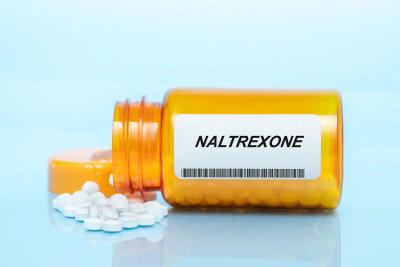For those experiencing long-haul COVID symptoms, relief cannot come soon enough. Despite the immense advancements in medicine, long COVID has remained a deeply perplexing ailment, leaving doctors as stumped as their patients. Long COVID has posed an ongoing challenge for medical professionals as they attempt to decipher its unpredictable and varied symptom presentation. With patients struggling to cope with its long-term effects, it is clear that finding effective treatments is crucial. The global prevalence of long COVID amplifies this urgency, requiring researchers to look for timely and effective solutions.
Low Dose Naltrexone (LDN), a relatively obscure drug, is now being evaluated as a potential solution for long COVID. Its unique mechanisms provide hope for the discovery of new therapeutic pathways to combat this complex and distressing condition. While previously overshadowed by mainstream treatments, LDN is stealing the limelight and generating palpable excitement in the scientific community. With the urgency to find relief for those suffering from long-haul symptoms more pressing than ever, LDN has emerged as a beacon of hope in this difficult medical journey.
Long COVID is a term that has become increasingly common in discussions surrounding the ongoing COVID-19 pandemic. This phenomenon refers to a range of symptoms that persist for weeks or even months following a person’s initial infection with the virus. The diverse nature of these symptoms, which can include anything from fatigue and brain fog to joint pain and heart complications, creates unique challenges for healthcare providers and patients alike. In fact, millions of people around the world have reported experiencing long COVID symptoms, highlighting the significant impact this condition can have on global populations, healthcare systems, and economies. Despite ongoing research efforts, treatment options for long COVID remain limited.
Low Dose Naltrexone (LDN) has been gaining popularity in recent years for its potential ability to modulate the immune system and reduce inflammation. But what exactly is it, and how does it differ from the higher doses traditionally used to treat opioid dependence and alcoholism? At low doses, Naltrexone works in a completely different way, potentially making it an effective treatment for a variety of conditions.
As we continue to learn more about long COVID, one promising avenue of investigation is the connection between LDN and symptom relief. While there is still much to be understood in formal investigations, initial reports from patients have sparked interest in the potentially powerful effects of LDN. As we strive to find effective treatments for the debilitating symptoms of long COVID, understanding the connection between LDN and symptom relief could be a crucial piece of the puzzle.
Preliminary research findings suggest that Low Dose Naltrexone (LDN) may hold great potential in managing this condition. While results are still preliminary, initial studies have shown promise in two key areas: immune modulation and reduced inflammation. By regulating the immune response, LDN may be able to reduce the inflammation that often contributes to long COVID symptoms. Furthermore, its effects on the brain may also address neurological symptoms associated with the condition.
One significant benefit of LDN is that it has a commendable safety record, making it a favorable option for a broad range of patients. Unlike many other prescription drugs that come with a host of side effects, LDN has a low side effect profile that is comforting to know. Additionally, LDN is an off-patent drug, making it a cost-effective solution that could ease the financial burden on both patients and healthcare systems. Two more potential benefits of LDN for long COVID include its flexibility when it comes to dosing, which allows for tailored treatment plans based on an individual’s unique symptom profile, and its potential dual action on immune and neurological symptoms. This makes LDN a promising contender in the realm of long COVID treatment options.
While the research is currently in its infancy, ongoing and upcoming projects are exploring the potential benefits of LDN in long COVID treatment. However, many experts and patient advocates alike are calling for more comprehensive studies to fully establish LDN’s role in long COVID therapy. Patient voices have been particularly vital in propelling research forward, with firsthand experiences and advocacy efforts driving attention toward this promising approach.
As we continue to search for effective treatments for long COVID, the emerging role of LDN offers a glimmer of hope for many sufferers. Its potential benefits are significant and could reshape the way we approach the treatment of this debilitating condition. However, it is important to remember that while promising, LDN’s role needs to be rigorously validated through scientific research and peer-reviewed studies. Continued investigation will ensure that we can base its effectiveness solely on evidence. Furthermore, it is essential that we integrate patient experiences and interdisciplinary research to gain a holistic understanding of Long COVID, and develop comprehensive solutions for this complex condition. By adopting a patient-centric approach and engaging in collaborative research, we can bring hope to those who have been suffering for too long.
